

How Beneficial is Travel and Tourism to an Economy?
Tourism lies at the heart of many economies in the world today. According to the World Trade Organization (UNWTO), this sector is a powerful driving force for the growth and development of an economy. From creating part-time and full-time jobs to developing a country’s infrastructure, travel and tourism is inarguably the largest sector of most economies. Apart from providing revenue to the government, highlighted below are other ways that travel and tourism benefits an economy.
Positively Impacts other Sectors of an Economy
Tourism creates demand for other sectors of an economy. Sectors like local travel, entertainment, hospitality, accommodation and food and shopping thrive more when tourism is at its peak. These sectors work in concert with tourism to ensure the tourist’s experience is memorable and enjoyable. The increased demand for local services brings value and helps grow a country’s economy.
Creates a Demand for the Casino Industry
The casino industry is another sector that thrives on tourism. Research suggests that people enjoy gambling more when on holiday than during other times. It could be due to many reasons, though the main one is the thrill and excitement of being in an actual foreign casino.
Online casino doesn’t necessarily require you to travel, but it’s still more fun on holiday. Some sites like https://www.pika-kasinot.co enable you to play quick casino online without having to create an account. If one of your hobbies when on vacation is playing online casinos, you wouldn’t want to be bogged down by the lengthy registration process. With quick casino, you don’t have to give your personal information. You just need to provide your bank ID, make a deposit then proceed to play.
Promotes Small Business Growth
Tourism brings revenue for small and local businesses, which increases their incomes and allows them to grow. When tourists visit a country, most may want to partake in the cultural and leisure activities upheld in the country. They may want to shop, buy souvenirs, dine in local restaurants, travel, and visit the beauties that the country offers. By engaging in these activities, the tourists directly or indirectly promote local businesses, thus motivating more citizens to start their own.
Creates an Urge for Development
Tourism creates an urge for the growth and development of an economy. In order to attract and sustain tourism, a country needs to develop its infrastructure, improve its resources and guarantee health and safety for both tourists and citizens. The desire to bring in more tourists is what drives the country to improve its infrastructure and resources.
To Sum Up
Tourism has the potential to drive the growth and development of an economy. At face value, this sector creates jobs, provides revenue for governments and improves a country’s image. Other benefits that tourism brings to an economy include creating demand for other sectors of an economy, promoting entrepreneurship and small business growth and creating an urge for growth and development. These benefits are perhaps why many countries hold tourism in high regard.
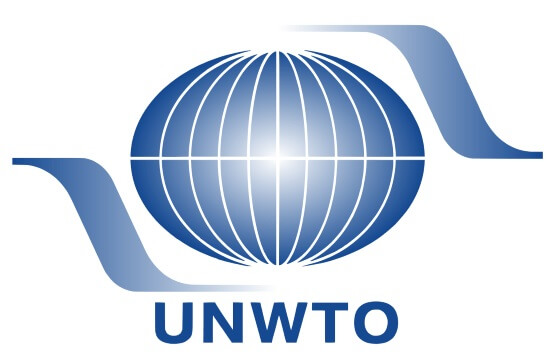
Vacation rental regulation catches up with innovation and UNWTO
Vacation rental regulations are a big issue in many parts of the world and of course for companies like AIRBNB.
The World Tourism Organization (UNWTO) has published the first systematic overview of how both national governments and local authorities are addressing and managing new business models in the accommodation industry. The so-called “sharing economy” has experienced significant growth over recent years and is poised to outpace the growth of traditional accommodation. Drawing on case studies from around the world, “New Business Models in the Accommodation Industry” analyses existing rules and regulations for the sector.
Drawing on 21 global case studies, the new UNWTO report notes that most of the measures implemented refer to areas of ‘fair competition’ and ‘consumer protection’, specifically measures related to taxation and registration and permits In comparison, measures relating to ‘planning and sustainability’, are less commonplace. At the same time, the report highlights the challenges destinations face in implementing rules and regulations, with a lack of local capacity and a lack of clarity over whose responsibility it is to monitor and regulate short-term tourist accommodation.
Commenting, UNWTO Secretary-General Zurab Pololikashvili said: “There are significantly more regulations than we thought and it is encouraging to see destinations taking the initiative. However, many challenges remain, including the practical implementation of rules and regulations relating to the short-term tourist rental market. Good governance and effective cooperation between the public and private sectors are key to successfully meeting these challenges.”
Case studies analysed for the “New Business Models in the Accommodation Industry” include European countries such as the Netherlands, Italy and Spain, which are home to some of the world’s most popular cities for tourists, as well as countries in the Americas such as Mexico and from across Asia as is the case of Japan.
The report was produced with the support of the Secretariat of Tourism of Mexico.
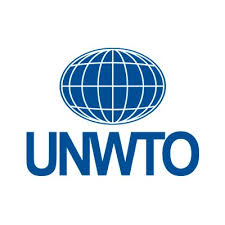
UNWTO and EBRD partner to strengthen sustainable and inclusive tourism
The European Bank for Reconstruction and Development (EBRD) and the UNWTO are joining forces to strengthen sustainable and inclusive tourism as a tool for achieving growth and development.
Under an MoU, signed by EBRD President Suma Chakrabarti and UNWTO Secretary-General Zurab Pololikashvili at the UNWTO Headquarters in Madrid, the two institutions pledge to work together in promoting and fostering tourism for the achievement of the 2030 Agenda and the 17 UN Sustainable Development Goals. The MoU is also aligned with the new property and tourism strategy the EBRD published yesterday.
In particular, the EBRD and UNWTO are looking for ways to strengthen the role of the tourism sector for social, economic and environmental development for regional integration and economic diversification.
Fostering education and training in tourism for job creation and socioeconomic inclusion, by adopting the best practices to increase and improve skillsets in the sector, is a key priority for both the EBRD and UNWTO.
The two institutions will also look to strengthen tourism governance and institutions, promote policy dialogue at national and regional level on matters of common concern, facilitate investments and advocate for the increase of Official Development Aid flows to the tourism sector, including through UNWTO.
UNWTO Secretary-General Zurab Pololikashvili commented: “Tourism has become a central part of the global sustainable development agenda. Strengthening our partnership with the EBRD will help us drive the sector forward, deliver change in the tourism climate and digital economy and help guide the growth of tourism in a responsible and inclusive manner for the benefit of all. We are happy to be your tourism intelligence and action partner.”
EBRD President Suma Chakrabarti said: “I am very delighted to be working with UNWTO to promote sustainable and inclusive tourism across the EBRD regions. Travel and tourism represent a vitally important and fast-growing sector of the global economy, and can benefit poorer, more remote regions, opening up job opportunities, promoting economic inclusion for all and facilitating the transfer of valuable skills. These are all objectives central to the EBRD’s mission.”
The EBRD and UNWTO are longstanding partners. In 2015, the two institutions signed an agreement in the framework of the EBRD’s commitment for supporting inclusive and sustainable tourism in the economies where the Bank invests, particularly in the southern and eastern Mediterranean (SEMED) region and the Western Balkans.

UNWTO General Assembly celebrates the synergy of film and tourism
Running right through the 23rd General Assembly in St Petersburg has been the topic of film and tourism. At the start of the Assembly, Spanish entrepreneur and President of Atlético de Madrid football cub Enrique Cerezo joined fellow experts to discuss the film industry’s close links with tourism and its shared values and benefits, including bringing people together and creating jobs and opportunities for all. Building on this, UNWTO Secretary-General Zurab Pololikashvili will take part in Cineposium, a leading international event around the world of cinema and visual production taking place back to back to the General Assembly.
Celebrating the role of film in promoting destinations and sustainable tourism, the General Assembly also saw the awarding of the first prize for “Exceptional Stories of Sustainable Tourism” during the Video Competition of the General Assembly. Chile won the new award, with the jury of leading journalists and media professionals applauding their clear demonstration of how tourism can help preserve traditional ways of life. Awards for Outstanding Country Promotional Videos were presented to: Tunisia, Mexico, India, Greece and Portugal, and Egypt.
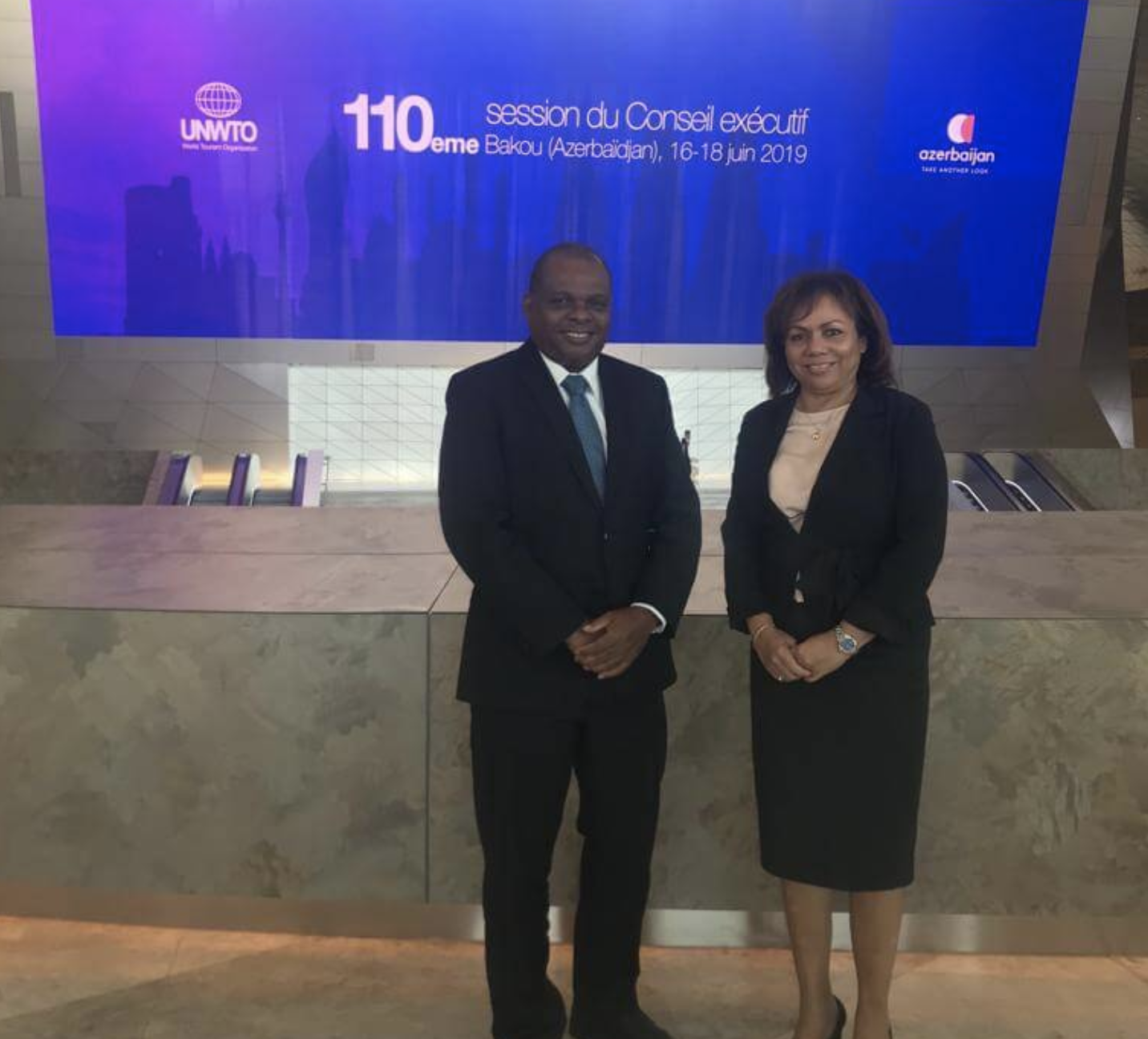
Seychelles participated in 110th Session of UNWTO Executive Council
The 110th Session of the UNWTO Executive Council met in Baku, Azerbaijan from June 16-18, 2019. More than 40 Member States joined by representatives from the public and private sectors attended the meeting. Seychelles was represented by Minister Didier Dogley, Minister for Tourism, Civil Aviation, Ports and Marine and Mrs. Anne Lafortune, Principal Secretary for Tourism.
The objectives of the UNWTO Council meeting are to bring together Member States for high level discussions on the direction of the global tourism sector, provide overview of UNWTO’s activities and progress over the previous year, and make key recommendations on the way forward.
The key priorities of UNWTO were presented during the meeting by the Secretary-General, Mr. Zurab Pololikashvili. This includes closer alignment with the wider United Nations system, financial sustainability and a focus on the role innovation, digital transformation and entrepreneurship can play in the global tourism sector. Another of UNWTO’s priorities is to make tourism a leading source of more and better jobs and a top provider of education and training.
In his intervention Minister Dogley welcomed the progress made in the newly launched ‘UNWTO Agenda for Africa’. “This four year plan will play a major role in realizing the potential of tourism for Africa if well implemented, focusing on tourism as a driver of poverty alleviation, job creation and professional development,” said Minister Dogley.
The Executive Council also endorsed the latest financial results and structural reforms implemented under the Secretary-General, which reflect the ongoing effort to guarantee the economic sustainability of the Organisation.
In the margin of the council meeting, the Minister and Principal Secretary for Tourism also met with Spain’s Secretary of State, Mrs. Isabel Maria Oliver Sagregas to discuss the possibility of a Memorandum of Understanding in the field of tourism between the Seychelles Ministry of Tourism, Civil Aviation, Ports and Marine and the Ministry of Industry, Trade and Tourism of the Kingdom of Spain. Spain has a well-developed tourism industry and signing an MOU with their Ministry responsible for Tourism can assist Seychelles to learn and benefit from Spain’s experience in the areas of training and exchange programs, sharing of best practices in fields such the Tourism Satellite Account, Management of tourism risks, Product Diversification and Cruise Tourism.
The meeting in Baku will be followed by the 23rd Session of UNWTO General Assembly, due to take place in Saint Petersburg, Russian Federation, in September 2019. Held every two years, the General Assembly is the most important high-level meeting of global Tourism Ministers and the private sector in the world.
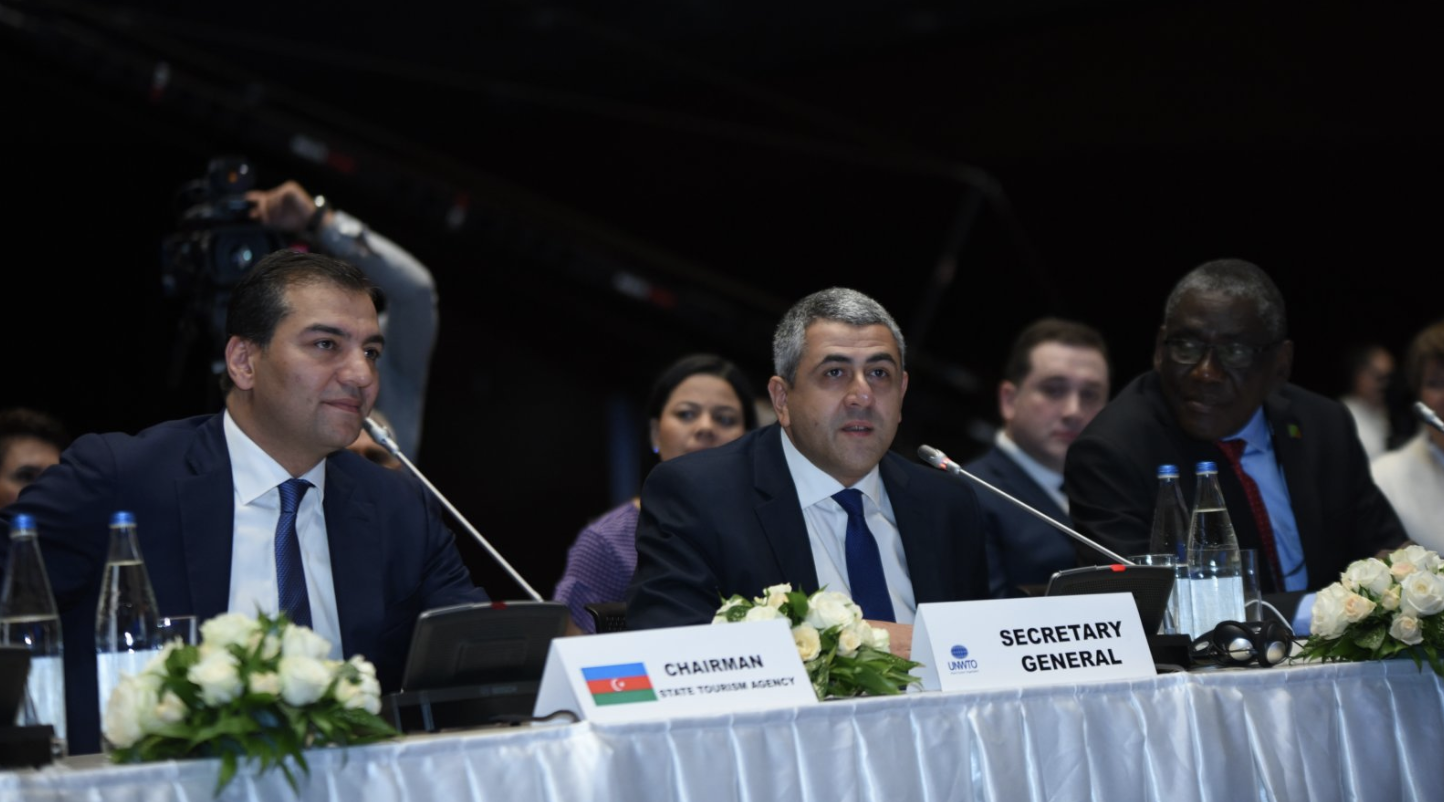
UNWTO: Tourism is a global force for growth and development
The World Tourism Organization (UNWTO) has met in Baku, Azerbaijan, for the 110th Session of its Executive Council (16-18 June). At the meeting, Member States endorsed the Organization’s progress and future plans, as outlined Secretary-General Zurab Pololikashvili, and warmly welcomed the participation of the United States as it explores the possibility of rejoining UNWTO.
With international tourist arrivals having grown by 4% over the first quarter of 2019, following on from 6% growth in 2018, the United Nations agency responsible for the promotion of responsible, sustainable and universally accessible tourism has met in Azerbaijan for the 110th Session of its Executive Council. The Council brings UNWTO Member States together for top-level talks on the direction of the global tourism sector.
“It is an immense pleasure to be in the dynamic city of Baku for the 110th Session of our Executive Council,” Mr. Pololikashvili said. “The Executive Council gives UNWTO Member States a thorough overview of UNWTO’s activities and progress over the preceding year, and makes key recommendations on the path ahead. Our time in Baku offered us the perfect opportunity to discuss the challenges presented by the ongoing rise in tourism numbers, including through the creation of more and better jobs and through driving gender equality. I thank all Member States for their commitment to UNWTO’s mandate and I thank the United States for their presence and openness to the possibility of rejoining and working with us to make tourism a driver of growth and equality.”
Mr. Fuad Nagiyev, Head of the State Tourism Agency of the Republic of Azerbaijan, expressed his support for UNWTO’s mission, noting that it was “an honour” for the country to have been chosen to host the 110th Session of the Executive Council.
“UNWTO events, including this Executive Council, are great platforms for promoting the potential of tourism and for forming and developing good working relations with both UNWTO and its Member States,” Mr Nagiyev added.
Fulfilling UNWTO’s vision of tourism as a force for good
Member States warmly welcomed the progress made as UNWTO works to fulfill the current management vision. More specifically, the Five Priorities underpinning Secretary-General Pololikashvili’s mandate include making tourism smarter through embracing innovation and digital transformation and growing competition and entrepreneurship within the sector. At the same time, making tourism a leading source of more and better jobs, and a top provider of education and training is another of UNWTO’s priorities.
Member States meeting in Baku were informed of progress achieved to make tourism more inclusive, seamless and a means of safeguarding and promoting social and cultural heritage and environmental sustainability. Additionally, the progress made in newly launched ‘UNWTO Agenda for Africa 2030’ was welcomed. The bold four-year plan is aimed at realizing the potential of tourism for Africa, with a special focus on tourism as a driver of poverty alleviation, job creation and professional development.
Institutional streamlining and financial sustainability
The Executive Council also endorsed the latest positive financial results and structural reforms implemented under the Secretary-General, which reflect the ongoing drive to guarantee the economic sustainability of the Organization.
At the institutional level, UNWTO reiterated its commitment to diversity and transparency. The Organization is moving ahead in the creation of a new Framework Convention on Tourism Ethics. This Convention brings UNWTO in line with most other UN agencies, and will specifically provide Member States with clear guidelines for making their national tourism sectors drivers of growth and inclusivity.
The meeting in Baku was celebrated as UNWTO prepares for the 23rd Session of its General Assembly, due to be held in Saint Petersburg, Russian Federation, in September. Held every two years, the General Assembly is the most important high-level meeting of global Tourism Ministers and the private sector in the world.
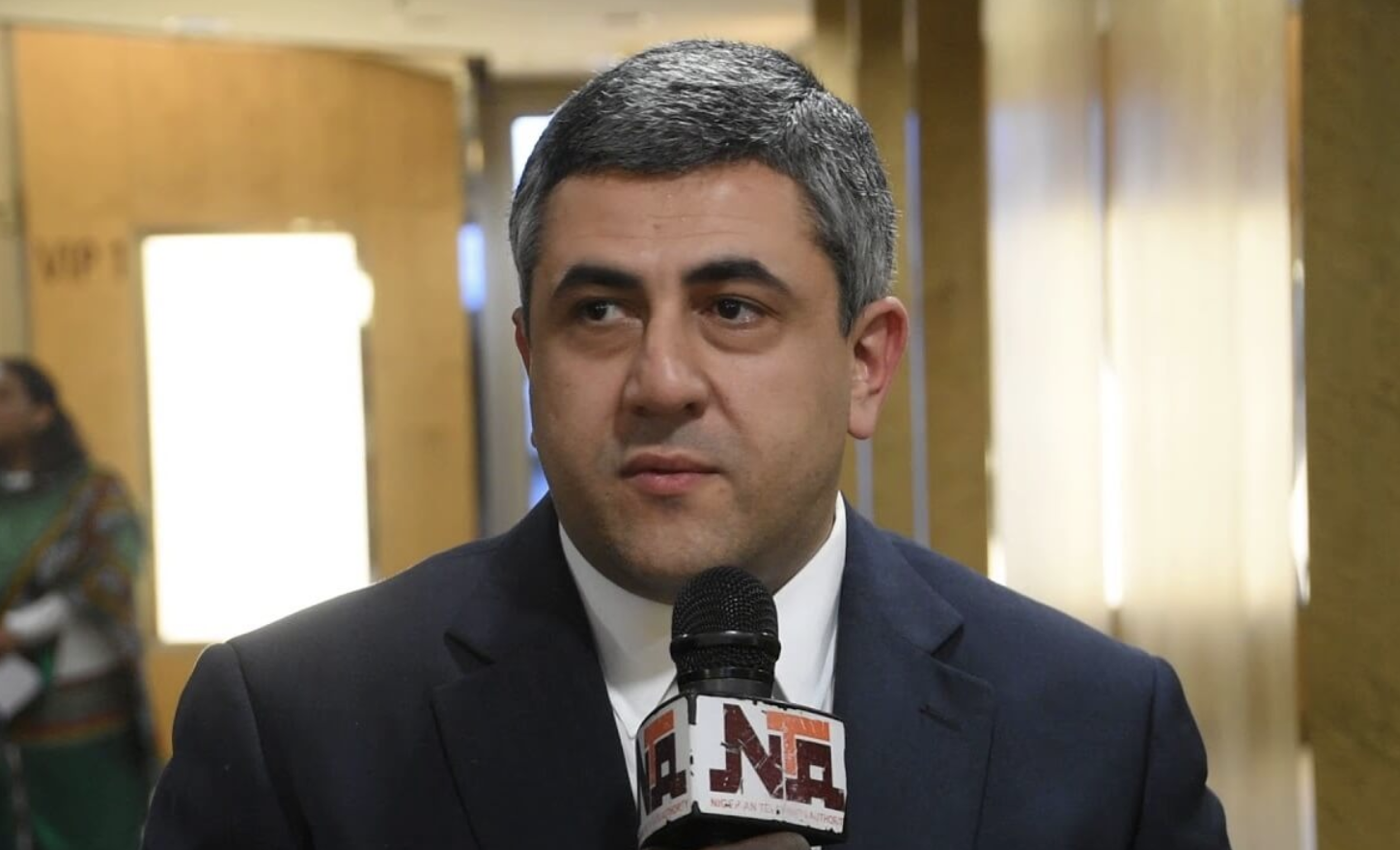
UNWTO: Exports from international tourism hit $1.7 trillion
Exports generated by international tourism reached USD 1.7 trillion in 2018, a 4% increase in real terms over the previous year, a new report from the World Tourism Organization (UNWTO) shows. For the seventh year in a row, tourism exports grew faster than merchandise exports (+3%), reflecting solid demand for international travel in a generally robust economic environment.
Strong growth in outbound travel from many source markets around the world fuelled revenues from international tourism to reach a total USD 1.7 trillion. This accounts for 29% of global service exports and 7% of overall exports of goods and services. These figures consolidate international tourism among the top five economic sectors in the world, behind chemical manufacturing and the fuel industry but ahead of the food and automotive industries.
“Rather than growing in volume we need to grow in value. We are pleased to see that both emerging and advanced economies around the world are benefiting from rising tourism income,” said UNWTO Secretary-General, Zurab Pololikashvili. “Revenues from international tourism translate into jobs, entrepreneurship and a better situation for people and local economies, while reducing trade deficits in many countries” he added.
Total exports from international tourism include USD 1,448 billion in international tourism receipts (visitor spending in destinations) and USD 256 billion in international passenger transport services. Tourism constitutes a key source of foreign exchange and a major tool for export diversification for many destinations.
International tourism receipts increased 4% in real terms (adjusting for exchange rate fluctuations and inflation) to reach USD 1,448 billion in 2018, about USD 100 billion more than the previous year. This is consistent with the 6% increase in international tourist arrivals in 2018.
By regions, Asia and the Pacific led the way with 7% growth in international tourism receipts, followed by Europe with a 5% increase. The Middle East saw 3% growth, while Africa (+1%) and the Americas (0%) recorded more modest results. Central and Eastern Europe and North-East Asia (both +9%) were the subregions with the strongest growth.
France and Russia lead growth among top spenders
Growth in receipts was fuelled by strong demand for international travel in the context of a robust global economy.
Among the world’s top ten source markets, France and the Russian Federation both recorded 11% growth in outbound spending in 2018, while Australia saw a 10% increase.
China, the world’s top spender reported USD 277 billion in international tourism expenditure in 2018, a 5% increase in real terms from a year earlier, while the United States, the second largest, spent 7% more, to reach USD 144 billion.
International expenditure from the United Kingdom grew 3% in 2018, and 4% from Italy, while Germany and the Republic of Korea both reported rather flat results. Further down the ranking, Spain enjoyed 12% higher spending on international tourism in 2018.

UNWTO: Sustainability a key part of tourism policies, but more still to be done
Countries around the world are integrating sustainability in their tourism policies but the evidence on the results of their implementation remains limited, research carried out for the first “Baseline Report on the Integration of Sustainable Consumption and Production Patterns into Tourism Policies” has found.
The Baseline Report, prepared by the World Tourism Organization (UNWTO) in collaboration with United Nations Environment (UN Environment) and with support from the Government of France, is the first global assessment of sustainable consumption and production (SCP) factors within national tourism policies. A total of 101 UNWTO Member States participated in this groundbreaking exercise.
All the tourism policies analyzed refer to sustainability as part of their objectives or vision and 55% address sustainability as a cross cutting element. At the same time, 67% of tourism policies include references to resource efficiency and 64% connect sustainability with the competitiveness of the sector. Tourism policy makers are aware of the importance of SCP but the references to policy instruments aiming at SCP implementation are limited and so is the evidence available for other aspects beyond the economic performance of the sector.
Celebrating the release of the Baseline Report, UNWTO Secretary-General Zurab Pololikashvili says: “Sustainability and competitiveness go hand in hand. Destinations and businesses can flourish while making a meaningful contribution to sustainability in several ways, including through the efficient use of resources, promoting biodiversity conservation and taking action to fight climate change”.
Advancing SCP practices in the tourism sector is essential if the sector is to contribute effectively to sustainable development and the 2030 Agenda. With this in mind, UNWTO has also launched the Sustainable Tourism Policy Talks alongside the Baseline Report. The series of talks feature interviews with Ministers of Tourism on the implementation of national tourism policies.
One Planet Sustainable Tourism Program
The Sustainable Tourism Program aims at scaling up SCP practices that boost the efficient use of natural resources in tourism while producing less waste and addressing the challenges of climate change and biodiversity.
UNWTO is the lead of the One Planet Sustainable Tourism Program with the Government of France as Co-Lead and in collaboration with UN Environment.
The program acts as an implementation mechanism for SDG12 and the Baseline Report and Sustainable Tourism Policy Talks directly contribute to the implementation of One Planet objectives.

UNWTO: Local residents remain largely positive to urban tourism
A global survey conducted by the World Tourism Organization (UNWTO) and IPSOS shows a positive picture of local residents’ perceptions towards urban tourism. Looking at 15 countries worldwide, the research also identified what residents consider to be the best ways of managing rising numbers of tourists, highlighting differing attitudes to urban tourism among different socio-demographic groups.
The survey aims at a better understanding of residents’ attitudes towards urban tourism. The research is also meant at identifying most valued management strategies to address the emerging challenges that come with increased tourism demand.
“In order to make sure that urban tourism continues to benefit local residents, it is fundamental to implement sustainable policies and practices. This includes the regular monitoring of residents’ attitudes towards tourism and factoring them in the tourism agenda,” said UNWTO Secretary-General Zurab Pololikashvili.
Perceptions…countries and age
Tourism’s impacts are valued most positively in Australia, Argentina, Sweden, the Republic of Korea and Spain. Young respondents (under 34) exhibit a stronger awareness of both the positive and negative impacts of city tourism, in contrast to older respondents (over 50) who perceive the negative impacts less. Younger respondents are also more likely to be in favour of more restrictive measures to manage increased tourism demand. Among older respondents, only 5% think that tourism promotion should be stopped, and only 8% favor limiting the number of visitors in their cities as compared to 12% and 16% of younger respondents.
..travel frequency…
Respondents who frequently travel to international destinations (twice or more in the last year) are less likely to feel that they live in cities with a high number of tourists when compared to respondents who do not travel so regularly. Similarly the perception of a positive impact of tourism is significantly higher among respondents who travelled in the past year.
…infrastructure and experiences – most favoured measures across countries
With regards to potential measures to address growing tourism flows in cities, residents across the 15 countries consider ‘improving infrastructures and facilities’ as the most effective. In Hungary, 89% of respondents stressed this measure as the most adequate, followed by Italy (80%) and Argentina (79%).
In a similar way, ´creating experiences and attractions that benefit residents as well as visitors´ is the second most preferred management strategy, and extremely popular in all countries (82% in Canada and Hungary; 75% and 74% in Argentina and Republic of Korea, respectively).
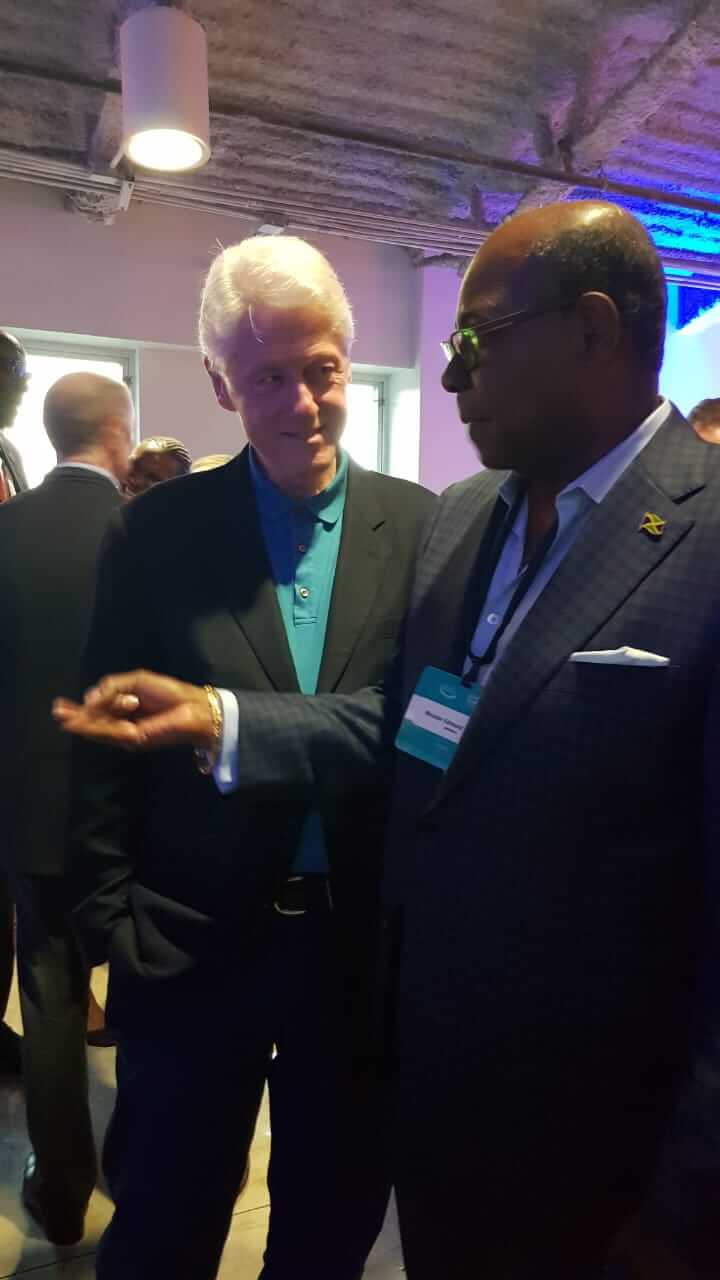
President Clinton and Minster Bartlett discuss Global Tourism Resilience and Crisis Management Centre
Jamaica Minister for Tourism, the Hon. Edmund Bartlett, met today with former United States President Bill Clinton at the ongoing 4th meeting of the Clinton Global Initiative (CGI) Action Network on Post-Disaster Recovery at the University of the Virgin Islands, St. Thomas, USVI.
The President showed great interest in supporting the Global Tourism Resilience and Crisis Management Centre.The first-ever Global Tourism Resilience and Crisis Management Centre is hosted in Jamaica and was unveiled earlier this year at Montego Bay by the Hon. Minister Bartlett during the 2019 Caribbean Travel Marketplace. Just last week, four more centers were announced in Japan, Malta, Nepal, and Hong Kong.
Minister Bartlett will deliver a keynote address at the GCI event on Tuesday and is expected to point out that the Caribbean is the most disaster-prone region of the world. Most islands are situated within the Atlantic hurricane belt where storm cells are produced, and the region sits along three active seismic fault lines, but it is also the most tourism-dependent region in the world.
President Bill Clinton and former U.S. Secretary of State Hillary Rodham Clinton are currently at the fourth meeting of the Clinton Global Initiative (CGI) Action Network on Post-Disaster Recovery on St. Thomas, U.S. Virgin Islands. The meeting, in partnership with Bloomberg LP and Love City Strong, will continue the discussion around hurricane recovery in the greater Caribbean region, and address topics such as infrastructure, agriculture, workforce development, clean and renewable energy, health, and Caribbean arts and culture.
The approach of the Action Network brings together a diverse group of stakeholders to focus efforts on putting people first, including prioritizing a resilient future by helping communities to plan and prepare for future storms and the mounting effects of climate change.
The Global Tourism Resilience and Crisis Management Centre, founded by Minister Bartlett, seem to be a perfect compliment to the activities spearheaded by the former U.S. President.
